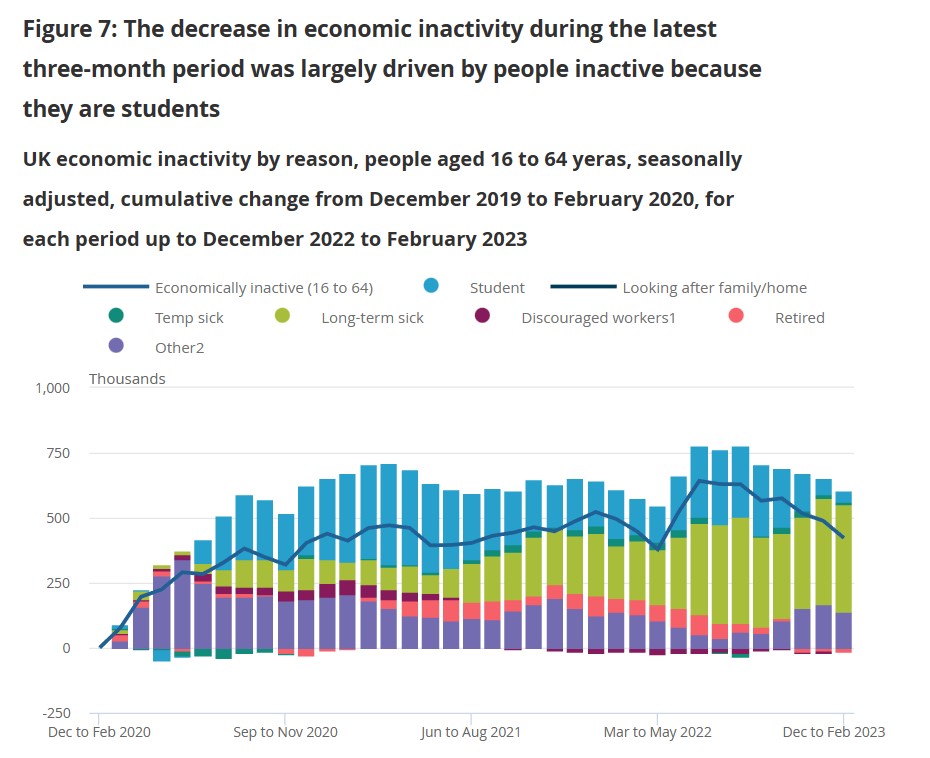More than 7,000 people have been added to the number of people who who are economically inactive due to long term sickness in the UK in the past month.
Last month data from the Office for National Statistics (ONS) revealed the number of people who were economically inactive due to long term sickness in the UK had more than doubled in the past year and was 25 times higher than before the pandemic.
This month’s data indicated yet another increase to 414,504 as of February, up from 407,339 in January.

Mark Till, CEO of Unum UK, said the lack of workforce participation was a “real problem” for employers, as vacancies still remained far higher than pre-pandemic levels at 1.1 million.
“While economic inactivity has fallen to 21.1% driven by a fall in the number of students, the number of people economically inactive due to long-term sickness increased to a record high of 2.5 million,” Till continued.
“Reversing this trend cannot be done overnight. However, group income protection can provide a wide range of health and wellbeing benefits to employees with preventative services designed to help identify and deal with issues earlier and therefore help reduce the risk of long-term sickness absence.”






